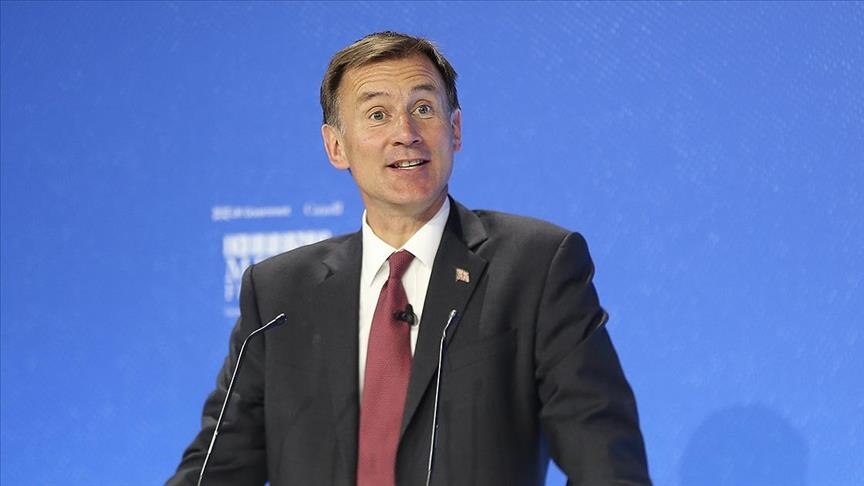LONDON
Britain’s new finance minister on Monday announced a reversal of almost all of the tax cuts announced in the government’s mini-budget last month.
Jeremy Hunt was only appointed chancellor of the exchequer on Friday. The mini-budget was announced by his predecessor Kwasi Kwarteng, with the support of Prime Minister Liz Truss, who gave Kwarteng his walking papers last week after 38 days in office.
The mini-budget sparked chaos in financial markets, due to its huge, unfunded tax cuts.
Hunt, from the moderate wing of the ruling Conservative party, was brought in to restore the reputation of Britain’s financial decision-making and to calm financial markets.
“The government has today decided to make further changes to the mini-budget, and to reduce unhelpful speculation about what they are, we’ve decided to announce these ahead of the medium-term fiscal plan, which happens in two weeks,” said Hunt.
The main changes were scrapping cuts to dividend tax rates; scrapping reforms to rules regarding the taxation of the self-employed; scrapping a VAT-free shopping scheme for foreigners visiting the UK; scrapping a freeze on alcohol duty; scrapping a planned 1% cut in the basic rate of income tax indefinitely that was scheduled for next year; and limiting the energy bailout until only April 2023, rather than two years, after which the scheme will be reviewed.
Income tax, energy bill relief
On income tax, Hunt said: “It is a deeply held Conservative value, a value that I share that people should keep more of the money they earn.
“But at a time when markets are rightly demanding commitments to sustainable public finances, it is not right to borrow to fund this tax cut.
“So I’ve decided that the basic rate of income tax will remain at 20% and it will do so indefinitely until economic circumstances allow for it to be cut.”
He called the energy bailout a “landmark policy supporting millions of people through a difficult winter. And today I want to confirm the support we are providing between now and April next year will not change.
“But beyond that and prime minister and I have agreed it would not be irresponsible to continue exposing public finances to unlimited volatility in international gas prices. So I’m announcing today a Treasury led review into how we support energy bills beyond April next year.”
At the end of his statement, Hunt sought to inject calm into financial markets, saying: “The most important objective for our country right now is stability.”
Previously, Hunt warned the public that tough choices were to come, which would involve a mixture of tax rises and public spending cuts.
Labour Shadow Chancellor Rachel Reeves said: “All the Chancellor’s statement underlines is that the damage has been done. This is a Tory crisis made in Downing Street, paid by working people with higher mortgage and higher borrowing costs. They’ve lost all credibility.”
Speaking to Sky News, prominent Conservative backbencher Tobias Ellwood reached all the way back to 1956 for comparison, saying: “This is the worst crisis since Suez. It’s good news this reckless experiment with Britain’s finances is now over.
“We now need to exhibit the scale of statecraft not seen in a generation if we want to turn this around.”

